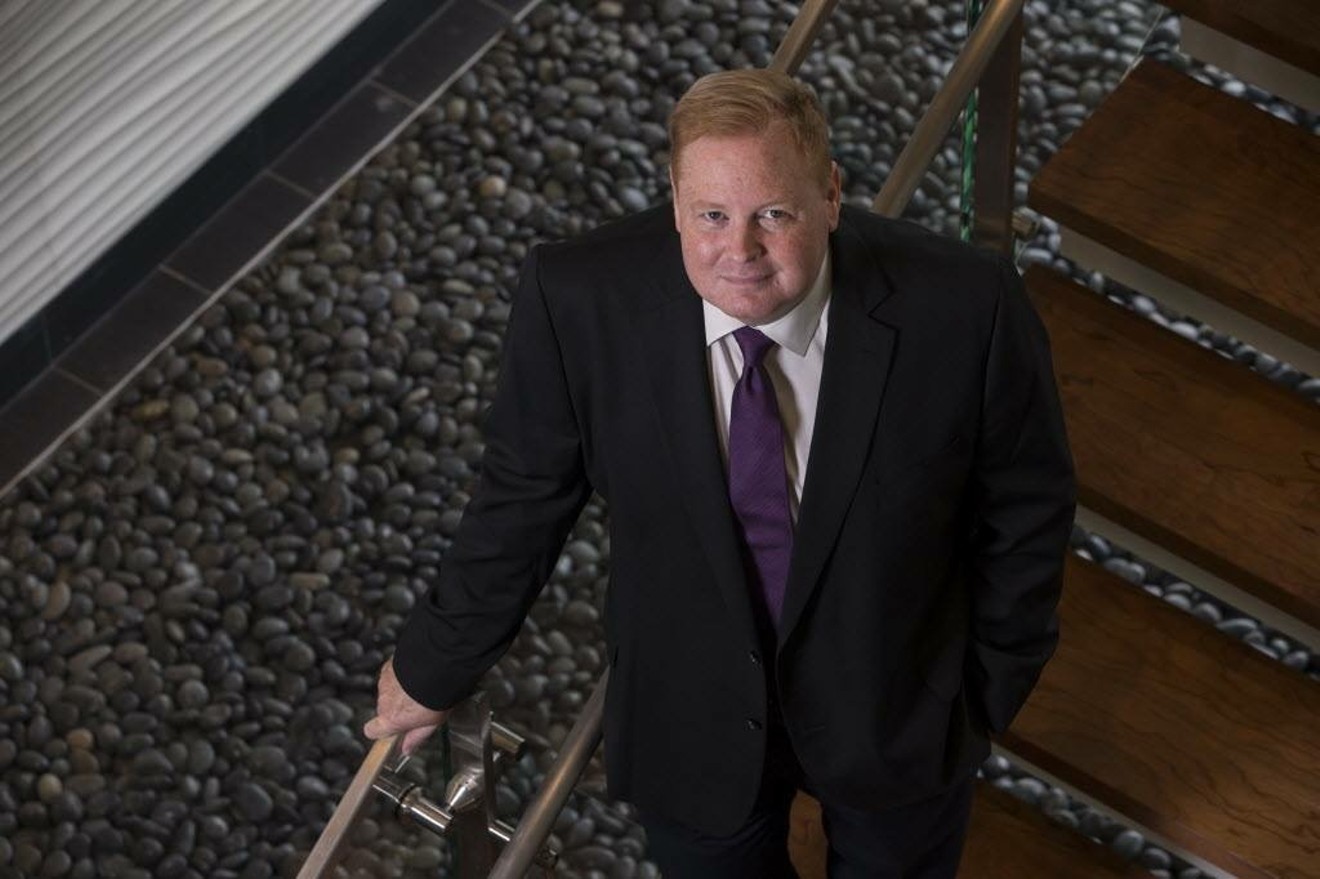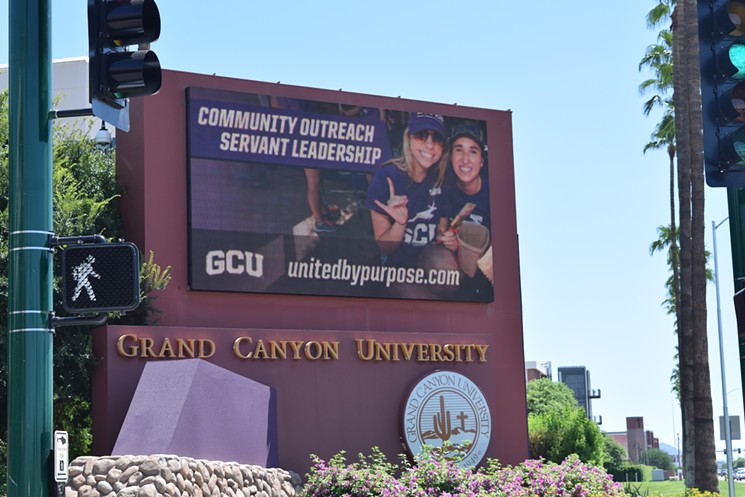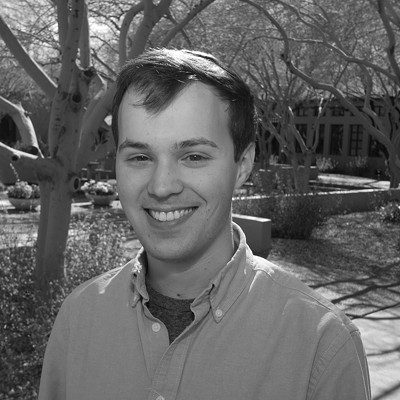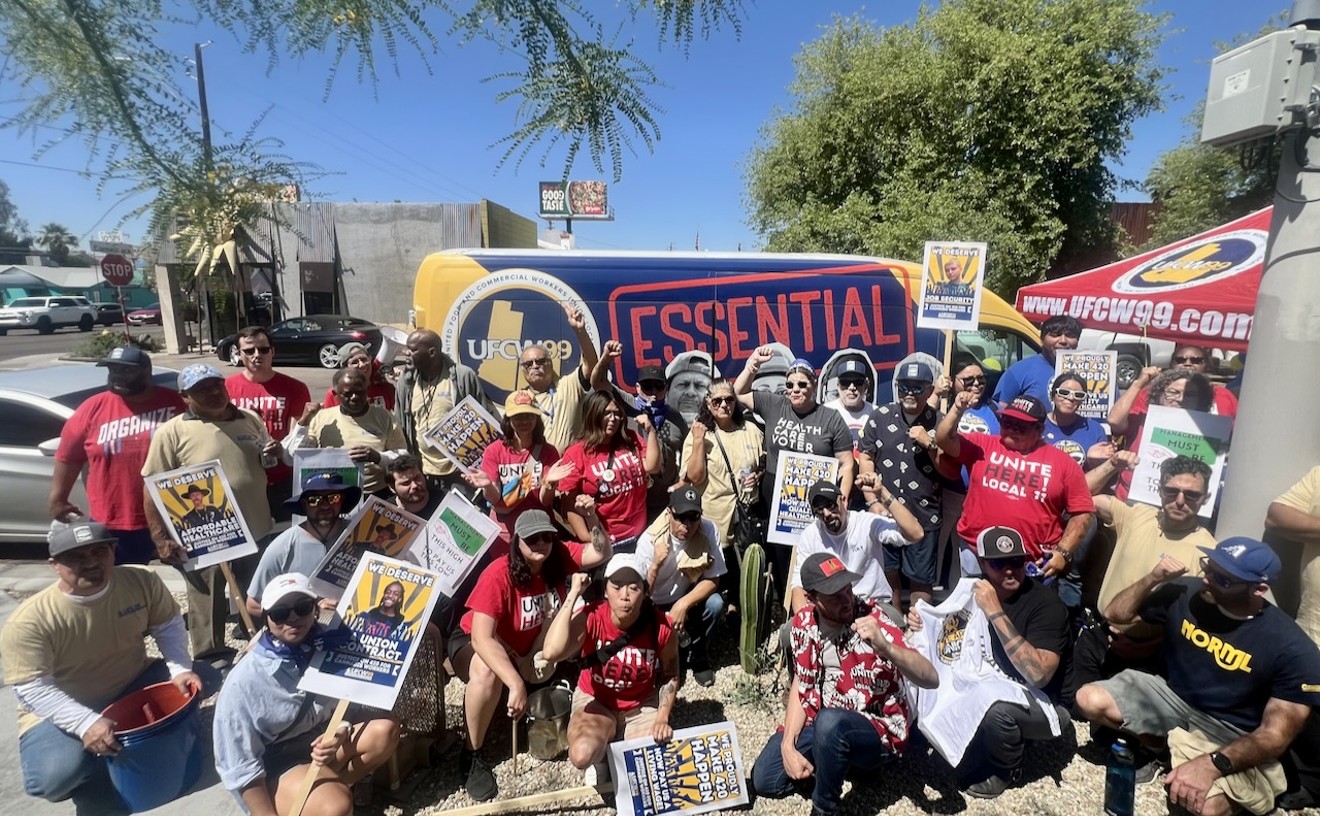Grand Canyon University – a Christian university in Phoenix operating, until recently, as a for-profit company – has broken norms about how a higher education institution can operate, though not always to praise.
Now, a top GCU dean is angling for a seat on the governing board that oversees the vast Maricopa County community college system.
Sherman Elliott, the dean of GCU’s college of humanities and social sciences, is running for the open seat in District 3, which extends north from central Phoenix along Interstate 17. He hopes to bring elements of GCU’s unconventional academic model to the community college board.
The Maricopa County Community College District governing board oversees one of the largest community college systems in the country: 10 colleges, more than 200,000 students, and a total annual budget that exceeds $1.65 billion.
Five board members are elected to four-year terms to represent districts around Maricopa County, while two others are elected at-large across the whole county. Elliott’s opponents in District 3 are Marie Sullivan, the former president of the nonprofit Arizona Women’s Education and Employment, and Debi Vandenboom, a private tutor.
Elliott’s run for the MCCCD board is unusual in light of his role at the rapidly growing university that was until this summer a for-profit entity. In July, GCU executed a complex and highly unusual conversion to become a nonprofit after 14 years as a for-profit, publicly traded education company.
Elliott pledged that if he is elected, he will recuse himself from governing board decisions pertaining to GCU. Yet when asked if there are things MCCCD can learn from GCU, Elliott didn’t hesitate. “Oh, god, yeah,” he said. “Absolutely.”
In an interview last week at a coffee shop near GCU, the avuncular Elliott explained that from his perspective, GCU has been a disrupter in the higher education industry, adopting “operational efficiencies” and breaking the cycle of year-over-year tuition increases.
“It's a 20th-century paradigm that needs to be blown up,” Elliott said of the traditional model of higher education.
Similar strategies can be applied to MCCCD, Elliott said, where he is an adjunct faculty member at Rio Salado College.
Elliott started teaching history and political science at Phoenix College, one of MCCCD's community colleges, in 1996. That position led to a teaching job at the Catholic high school Brophy College Preparatory, a doctorate of education at Arizona State University, and the directorship of Arizona State University’s Center for Civics Education.
In 2011, Elliott joined GCU as the department chair for secondary education. Two years later, he became the dean of the college of humanities as GCU was in the middle of a sustained period of enormous growth. “It was a great time,” Elliott said.
As described by Elliott, GCU's growth has been virtually unprecedented in American higher education. “We haven't raised tuition for 11 years. It's the only public or private university not to raise tuition,” Elliott said. “So it was a massive disrupter in the industry."
GCU was founded in 1949 but by the early 2000s it was a small, financially troubled nonprofit university. The school was sold to a for-profit company in 2004 as a final attempt to rescue the institution from fiscal disaster.
The new administration launched an array of online programs and recruited executives from the University of Phoenix, including GCU President and CEO Brian Mueller. The company went public on the NASDAQ in 2008.
In the years since the for-profit conversion, GCU’s student population has exploded from less than 1,000 students in 2008 to approximately 20,500 students on the ground campus, as of this fall. More than 75,000 students are enrolled in courses online, according to GCU. Meanwhile, the university's physical presence on the west side of Phoenix has expanded.
Now, GCU is poised to exert more influence than ever on Arizona's higher education landscape because of the long-sought conversion to a nonprofit, which relieves GCU of potential stigma associated with the for-profit sector, not to mention a mammoth property tax bill.
The skepticism of GCU remains, however.
Under GCU’s new nonprofit status, Mueller has a split identity. He is the CEO of profit-seeking company Grand Canyon Education, Inc., but he also remains the president of GCU, the nonprofit academic institution. Because Grand Canyon Education, Inc. will provide an array of services to the university, experts have criticized GCU’s new status as “nonprofit in name only.”
Elliott credited Mueller’s leadership steering GCU, and described him as “an incredible visionary.” When he made the decision to run for the MCCCD board, Elliott approached Mueller to let him know.
“He just said, ‘That's great,’” Elliott recalled – that was that. "I don't think he was discouraging about it or anything, it's just that it's just not on their radar," Elliott added.
He emphasized his previous work at ASU, and his job teaching as an MCCCD adjunct – for nearly 20 years, Elliott has taught humanities courses by mail to incarcerated people in the Arizona prison system through Rio Salado College.
“It's a real personal passion of mine,” Elliott said. Nevertheless, if he is elected to the board, Elliott will no longer be able to work as an MCCCD adjunct faculty member. He intends to keep his job as a GCU dean.
GCU spokesperson Bob Romantic would not respond to questions about Elliott's campaign. “We do not have any comment to the New Times,” Romantic wrote in an email.
Elliott is campaigning on a six-point plan for the district focused on cutting costs, improving retention, expanding vocational offerings, and working closely with faculty members to ease the recent tension between MCCCD faculty and the governing board.
The relationship between the faculty and the board has deteriorated. Last spring, MCCCD faculty filed a lawsuit against the governing board after the board voted to end a longstanding board-faculty process of negotiation over salaries and working conditions.
Elliott said that he is not trying to lean on his administrative experience when pitching himself to the MCCCD faculty. “I'm a dean, but the reality is, I'm also one of you,” Elliott said, describing his strategy for reaching out to the faculty. “I've never stopped teaching for 22 years in the exact same system you teach in."
His plan to hold down costs stems from own background growing up in a low-income household.
His father died when he was six months old. He was the first in his family to go to college. As a result, front of mind for Elliott is the fact that community colleges provide educational opportunity with little to no barriers to entry. The community college system serves people like his sister, Elliott said, who walked into a community college down the road from her home and eventually become a chiropractor.
MCCCD should keep tuition and expenses minimal by being efficient and looking for other sources of revenue, he argues. “The costs have got to be frozen,” Elliott said. “We've got to keep those costs low for families like mine.”
But, from a different perspective, his six-point plan seems to combine his personal history with his professional experience at GCU — especially when Elliott invokes the university's focus on cost and efficiency, which he now intends to apply to the community colleges.
Elliott said that people haven't expressed concerns to him about a GCU dean sitting on the MCCCD board. And he acknowledged that adopting GCU’s method is not the only solution.
“I'm well-versed in the funding model of the community college system, Arizona State University, the board of regents, and Grand Canyon. So whatever model works best going forward, that's the model that I want to come up with,” he said.
And although Elliott's plan to freeze tuition might seem drastic, MCCCD has tried to halt endless tuition increases.
The MCCCD board lowered tuition by $1 per credit hour for this academic year, after two years of a tuition freeze which capped tuition at $86 per credit hour. The cost of attending the community college system, however, has increased by 32 percent over the past 10 years, the Arizona Republic reported.
The winner of the District 3 election will replace Johanna Haver, who is stepping down after one term on the board.
She declined to comment on Elliott's race for the seat. "In this case, it is important for me to be on good terms with whoever wins," Haver wrote in an email. "My hope is to assist the person who succeeds me."
Sullivan, one of Elliott’s opponents, said that while she respects his desire to serve on the board, she suggested that it may be difficult for Elliott to remain entirely transparent or free from conflicts of interest related to GCU, which may emerge from time to time.
Residents in District 3 deserve a board member who is “unbiased in their ability to be fully committed to those students, those constituents, those taxpayers,” she said.
“It's possible that Mr. Elliott's professional commitment could get in the way of good decision-making for the community colleges,” Sullivan said.
She agreed that Elliott ought to recuse himself from decisions pertaining to GCU, and added that there might be subtle, indirect conflicts with his work on the board, should voters elect him. “There can be subtle directions or intentions — for example, trying to model the community college experience around a GCU model of college experience,” Sullivan said.
Elliott, however, pushed back on the notion that serving as a GCU dean would create a conflict on the MCCCD board.
He said that GCU has a great relationship with the community colleges — GCU receives transfer students from the community colleges, he said, while many GCU students take courses at the community colleges over the summer.
“Anything that I can bring just creates better transfer students into ASU and GCU or NAU or wherever they go,” Elliott said. “We're not competing for the same students.”
[
{
"name": "Air - MediumRectangle - Inline Content - Mobile Display Size",
"component": "18478561",
"insertPoint": "2",
"requiredCountToDisplay": "2"
},{
"name": "Editor Picks",
"component": "16759093",
"insertPoint": "4",
"requiredCountToDisplay": "1"
},{
"name": "Inline Links",
"component": "17980324",
"insertPoint": "8th",
"startingPoint": 8,
"requiredCountToDisplay": "7",
"maxInsertions": 25
},{
"name": "Air - MediumRectangle - Combo - Inline Content",
"component": "16759092",
"insertPoint": "8th",
"startingPoint": 8,
"requiredCountToDisplay": "7",
"maxInsertions": 25
},{
"name": "Inline Links",
"component": "17980324",
"insertPoint": "8th",
"startingPoint": 12,
"requiredCountToDisplay": "11",
"maxInsertions": 24
},{
"name": "Air - Leaderboard Tower - Combo - Inline Content",
"component": "16759094",
"insertPoint": "8th",
"startingPoint": 12,
"requiredCountToDisplay": "11",
"maxInsertions": 24
}
]













